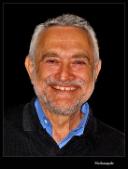
Salvador Moncada, MD, obtained his PhD in the early 1970s at the Royal College of Surgeons in London, where he contributed to the discovery that aspirin-like drugs inhibit prostaglandin biosynthesis, thus accounting for their analgesic, anti-pyretic and anti-inflammatory actions.
In 1975 he joined the Wellcome Research Laboratories where, as Head of the Department of Prostaglandin Research, he initiated the work leading to the discovery of the enzyme thromboxane synthase and the vasodilator prostacyclin. This work contributed to the understanding of how low doses of aspirin prevent cardiovascular episodes such as myocardial infarction and stroke. He was Director of Research at the Wellcome Research Laboratories from 1986 until 1995, during which time he oversaw the discovery and development of a number of drugs, including lamotrigine (anti-epileptic), zomig (anti-migraine), atovaquone (anti-malarial) and the initiation of the project which led to the finding and development of lapatinib (anti-cancer).
In 1985 he began a project that led to the identification of nitric oxide (NO) as the biological mediator formerly known as endothelium-derived relaxing factor. He elucidated the pathway of the synthesis of NO from the amino acid L-arginine and discovered many of the biological activities of this novel mediator. His finding that NO is generated in the central nervous system led him to propose that the L-arginine: NO pathway is a widespread transduction mechanism for regulating cell function and communication.
In 1996 Prof. Moncada moved to University College London to establish and direct the Wolfson Institute for Biomedical Research (originally known as the Cruciform Project). The aim of this Institute has been to establish a centre of excellence in biomedical research that provides an interface between academia and industry, thus establishing one of the earliest units for translational research in the UK. This approach has led to the setting up of a number of spin-out companies, including Ark Therapeutics (vascular disease and cancer), Arrow Therapeutics (anti-infective drugs), CereXus (neuroscience), Inpharmatica (bioinformatics) and ProAxon (sodium channel blockers).
At the invitation of the Spanish Government, between 1999 and 2004 Professor Moncada conceived, designed and developed the Centro Nacional de Investigaciones Cardiovasculares (CNIC) in Madrid.
In the last decade his work has focused on the interaction between NO and cytochrome c oxidase, the terminal enzyme of the mitochondrial electron transport chain. This work has established the role of NO as a physiological regulator of cell respiration and a cell signalling molecule in response to stress. In addition, he has shown that interactions between NO and oxygen at the level of cytochrome c oxidase might also initiate pathophysiology. His recent finding that NO is involved in mitochondrial biogenesis has implications for the understanding of metabolic syndrome, type-2 diabetes and obesity.
His interest in glycolysis has led him, in recent years, to the identification of a molecular mechanism that coordinates cell proliferation with the provision of the metabolic substrates required for this process. This research has significant implications for the understanding of normal and abnormal cell proliferation, for example in cancer.
From 2010 to 2013 he ran an independent VIB-K.U. research group in the VIB Vesalius Research Center in Leuven, Belgium. The research team, which he ran concurrently with his laboratory at the WIBR, focused on basic research to unravel the molecular basis and explore the therapeutic potential of the link between metabolism and cell proliferation.
From January 2014 Prof Moncada is Professor of Translational Medicine and Strategic Advisor at the University of Manchester and is Emeritus Professor of Experimental Biology and Therapeutics at University College London.
Prof. Moncada’s research has had a major impact, as shown by his standing in the international citation indexes and his acknowledgement as the most cited UK scientist in biomedicine in the 1990s. In 2010 he received a Knighthood from Her Majesty the Queen in recognition of his services to Science.
Facultad de Medicina. Universidad Autónoma de Madrid. Calle del Arzobispo Morcillo 4. 28029 Madrid. Tel.: +34 914 975 486. Correo electrónico: informacion.medicina@uam.es